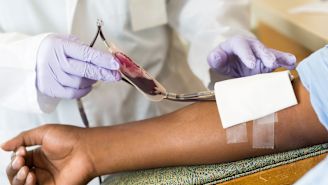Long-chain fatty acid oxidation disorders (LC-FAODs) are a group of metabolic disorders that inhibit a person’s ability to properly metabolize certain fats and oils that are common in many foods. LC-FAODs are rare, affecting only a few thousand people in the U.S., with only a hundred or so new cases diagnosed each year.
These disorders are caused by inherited gene mutations. The majority of people who have a LC-FAOD are diagnosed shortly after birth, though others are diagnosed later in life. These disorders can have a significant impact on a person’s normal development, overall health, and quality of life. LC-FAODs can cause a number of chronic symptoms, and attacks of symptoms related to LC-FAODs can be fatal.
LC-FAODs are lifelong conditions, but can be managed through lifestyle, diet, medication, and working with specialists to address symptoms caused by LC-FOAD.
If you are living with a LC-FAOD or are the parent of a child with a LC-FAOD, it is important to learn as much as you can about the disorder and what resources are available for patients. The following links may help.
INFORM Families Network
INFORM stands for International Network for Fatty Acid Oxidation Research and Management. The organization’s goal is to further the research and understanding of FAODs and related conditions. The INFORM Families section of the website offers information on specific FAODs, firsthand accounts from patients and parents, information on support groups and clinical trials, and more. It’s also a great place to go if you have a question—search the Q&A for previously-answered questions or post your own.
MitoAction
MitoAction is a nonprofit organization that aims to improve the quality of life for people with mitochondrial disease, including FOADs. Their site offers a number of downloadable material toolkits that address different aspects of life with a mitochondrial disease, with topics that include coping with a child’s diagnosis, advocating for yourself and your child, tips on relationships, keeping medical records, and knowing your rights as a patient. You’ll also find a number of ways to connect with other people and families affected by similar disorders.
Caregiver Action Network
Caring for a child with a rare disease can be challenging. At times, it can feel overwhelming. The Caregiver Action Network provides resources that can hopefully make it a little easier. The site offers how-to materials on thinking like a caregiver, preparing for appointments, and communicating with healthcare providers. There are also sections on taking care of your own health and coping with the complicated feelings and emotions that come with being a caregiver.
The FOD Family Support Group
The FOD (Fatty Oxidation Disorders) Family Support Group is focused on educational materials about fatty oxidation disorders (including LC-FAODs) for both families and healthcare professionals. Of particular interest is the section of the site titled Urgent Info for ER Personnel. While primarily directed at medical professionals, it is a worthy read for parents and patients of all ages, as it addresses the challenges of getting proper care for a rare disease in an emergency setting. Acute episodes of severe LC-FAOD symptoms can be life-threatening and require emergency treatment.
FAOD In Focus
A great starting point for all the topics covered above, FOAD In Focus features easy-to-understand information on FOADs, metabolism, genetics, acute episodes, and other relevant FOAD topics. It also has a number of downloadable resources to help with things like organizing medical records, communicating with healthcare providers, and looking after yourself while being a caregiver.






